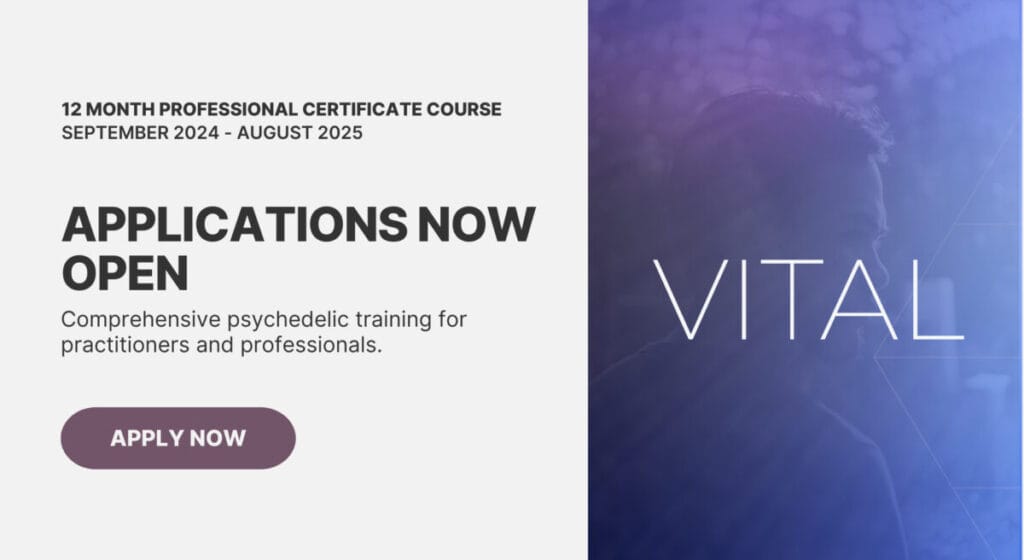
Training
Empathy and Agency: Why Psychedelic Practitioners Need to be Trauma-Informed
August 30, 2024
Featuring: Deanna Rogers
Modern Western culture has conditioned us to suppress our feelings and bury negativity, exacerbating any existing trauma and often creating more. With the rise in popularity of psychedelic-assisted therapy, just how important is it for practitioners to be trauma-informed?

Modern Western culture has conditioned us to suppress our feelings and bury negativity, exacerbating any existing trauma and often creating more. With the rise in popularity of psychedelic-assisted therapy, just how important is it for practitioners to be trauma-informed?
In this episode of Vital Psychedelic Conversations, David interviews Deanna Rogers: Registered Clinical Counselor and Vital instructor.

She discusses how trauma grows in our bodies, and the importance of practitioners and facilitators becoming trauma-informed before working with clients. She stresses the need to create the right conditions for clients to be able to work with trauma – to bring compassion to the different parts of their self and build a relationship with the uncomfortable ones, to interrupt negative narratives, and to learn how to exist in a place where they can embrace their window of tolerance and explore discomfort in a safe way. What is the specific container and pace each client needs? How flexible is their nervous system to be able to work with these states? What can be done to bring out the empathetic witness in themselves? And most importantly, how can their sense of agency be improved so that they feel like they’re fully in control of how deep things go?
She discusses:
- Her early ayahuasca experiences, and her path toward working with others, including working with Gabor Maté and Peter Levine
- How psychedelics allow us to access our irrational, animal parts, and how this work is often a combination of sacred and messy
- The need for facilitators to have a basic understanding of the nervous system and fight or flight reactions
- Moving away from the idea of: “There’s something wrong with me.” What do these chronic narratives do to our bodies?
- Working with clients to build out the capacity of their nervous system first, before working with any trauma
and more!
Rogers is one of our Vital instructors, featured in one of Vital 4’s new Specializations: Somatics & Trauma. This cohort begins on September 17, and the application deadline is next week, September 3, so apply today before it’s too late!
Links
Somethinkofvalue.com: 70 Gabor Maté Quotes About Trauma, Healing, and More
Goodreads.com: Peter Levine quote
PT302 – Dr. Adele Lafrance – Vital Psychedelic Conversations


